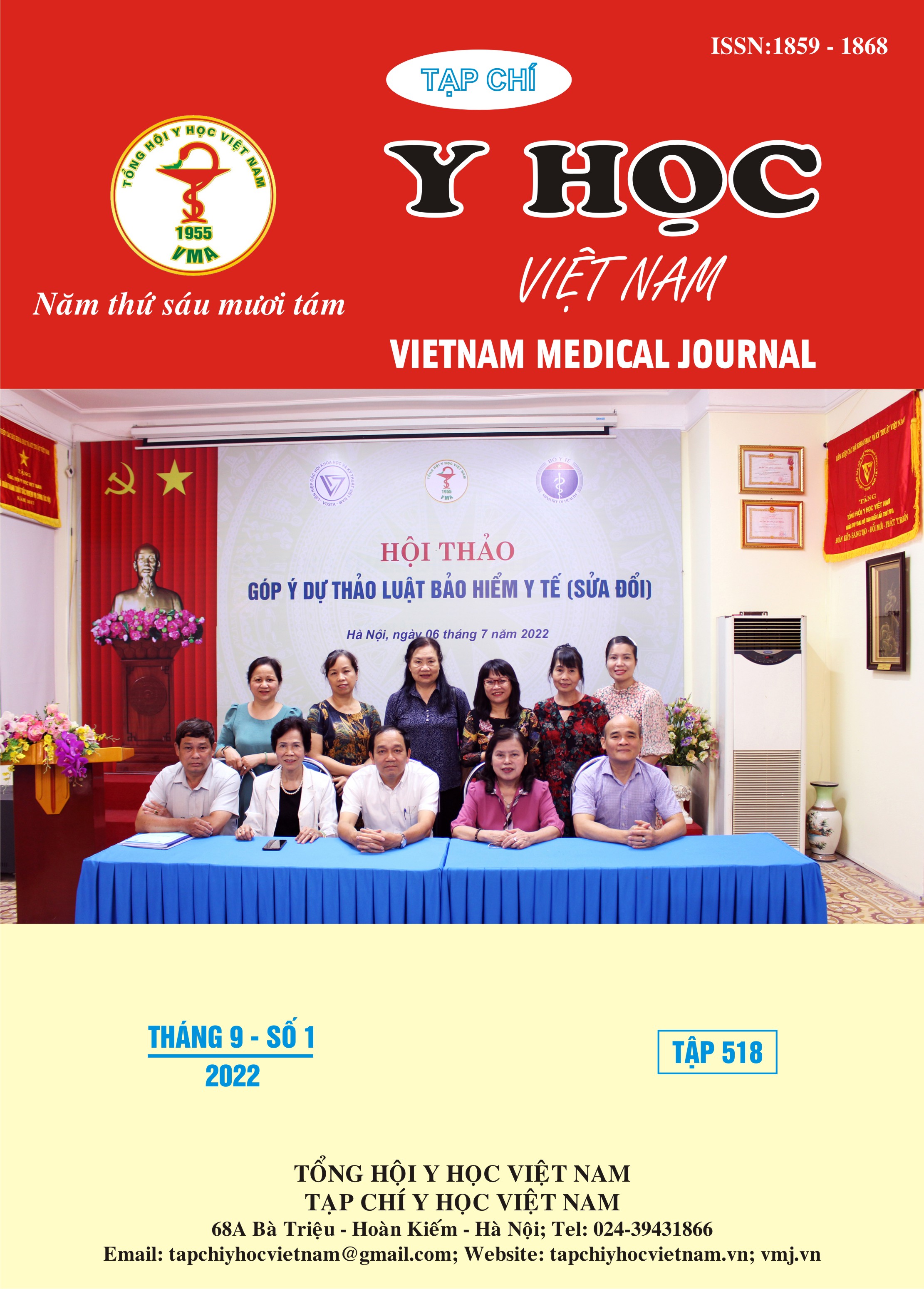NGHIÊN CỨU ĐẶC ĐIỂM VÀ KẾT CỤC THAI KỲ CỦA NHỮNG THAI PHỤ BÉO PHÌ TẠI BỆNH VIỆN PHỤ SẢN THÀNH PHỐ CẦN THƠ NĂM 2020-2022
Nội dung chính của bài viết
Tóm tắt
Đặt vấn đề: Ngày nay tỷ lệ thai phụ béo phì ngày càng tăng, điều này sẽ gây nhiều biến chứng nguy hiểm cho mẹ và thai nhi trong thai kỳ. Với mục đích tìm hiểu đặc điểm của các thai phụ béo phì để dự đoán được những nguy cơ có thể xảy ra và từ đó đưa ra những khuyến cáo cho thai phụ nhằm làm giảm những biến chứng có thể xảy ra trong thai kỳ. Mục tiêu nghiên cứu: Xác định đặc điểm và kết cục thai kỳ của các thai phụ béo phì. Đối tượng và phương pháp nghiên cứu: cắt ngang mô tả 76 thai phụ béo phì nhập viện sinh. Ghi nhận đặc điểm và kết cục thai kỳ của thai phụ thời điểm nhập viện. Kết quả: có 76 thai phụ béo phì, trong đó 59 béo phì I (77,63%) và 17 béo phì II (22,37%). Tỷ lệ thai phụ béo phì trong độ tuổi sinh đẻ gặp nhiều nhất (69,73%). Tỷ lệ thai phụ béo phì sống ở thành thị cao hơn thai phụ sống ở nông thôn (65,79% so với 34,21%). Tỷ lệ thai phụ béo phì tăng cân > 12 kg tương đương với thai phụ béo phì tăng cân ≤ 12 kg. Tỷ lệ thai phụ béo phì không được tầm soát đái tháo đường thai kỳ ở 3 tháng đầu cao (46,16%). Tỷ lệ thai phụ béo phì chấm dứt thai kỳ bằng mổ lấy thai cao hơn sinh đường âm đạo (85,53% so với 14,47%). Tỷ lệ trẻ được chăm sóc tại khoa sơ sinh thấp (3,95%). Có 2 trường hợp có biến chứng sau khi chấm dứt thai kỳ là băng huyết sau sinh và nhiễm trùng hậu phẫu. Kết luận: tỷ lệ thai phụ béo phì có xu hướng tăng và là 1 vấn đề của xã hội ngày nay
Chi tiết bài viết
Từ khóa
thai phụ béo phì, đái tháo đường thai kỳ, mổ lấy thai
Tài liệu tham khảo
2. Nguyễn Thị Màu (2018), Nghiên cứu đặc điểm lâm sàng, cận lâm sàng và đánh giá kết quả kết thúc thai kỳ ở các sản phụ và béo phì tại Bệnh viện Phụ Sản Cần Thơ năm 2017 - 2018, Luận văn tốt nghiệp bác sĩ đa khoa
3. Vũ Văn Tâm, Lưu Vũ Dũng (2017), “Tỷ lệ đái tháo đường thai kỳ ở phụ nữ có yếu tố nguy cao và mức độ ảnh hưởng tới thai phụ, thai nhi ở Bệnh viện Phụ sản Hải Phòng”
4. Brunner S, Stecher L, Ziebarth S, et al (2015). Excessive gestational weight gain prior to glucose screening and the risk of gestational diabetes: a meta-analysis. Diabetologia. 2015; 58(10):2229-2237. doi:10.1007/s00125-015-3686-5
5. Iñigo Melchor (2019), Effect of maternal obesity on pregnancy outcomes in women delivering singleton babies: a historical cohort study, J. Perinat. Med. 2019, https://doi.org/10.1515/jpm-2019-0103 Received
6. Johannes Stubert (2018), The Risks Associated With Obesity in Pregnancy Dtsch Arztebl Int 2018; 115: 276-83. DOI: 10.3238/arztebl.2018.0276
7. John T. Queenan (2021), MD Protocols for High‐Risk pregnancies An Evidence‐Based Approach 2021 John Wiley & Sons Ltd.


